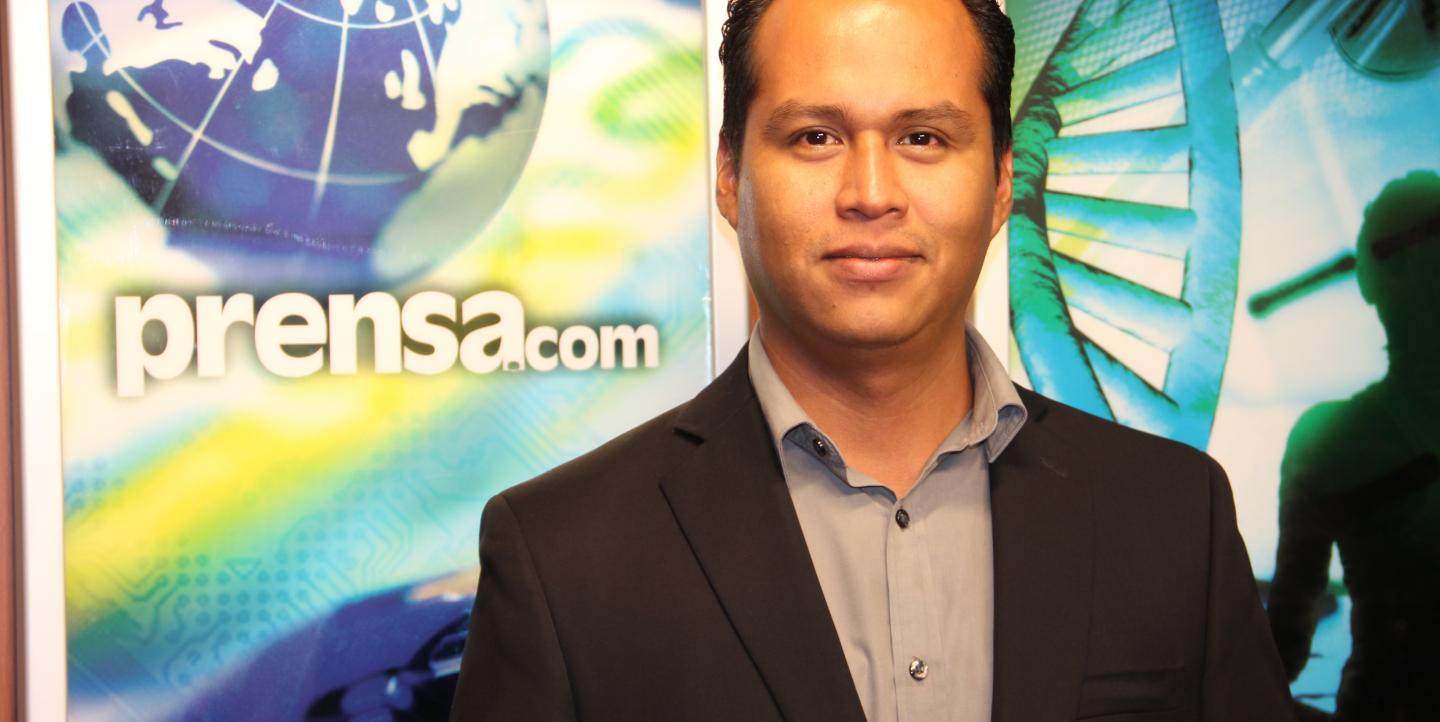Updated at 9:32 pm EST on August 28, 2014.
Each month, IJNet features an international journalist who exemplifies the profession and has used the site to further his or her career. If you would like to be featured, email a short bio and a paragraph about how you have used IJNet here.
This month we feature journalist Didier Hernán Gil, a reporter for Corporación La Prensa, where he is specializes in transportation for the Society section. He also serves as co-presenter of the digital show Panorama, and contributes to Catholic Panorama radio.
Previously, Hernán worked as a reporter and editor at the newspaper DIAaDIA. He received his bachelor's degree in U.S.-Panama relations at the University of Panama in 2003. He has done postgraduate studies at the Specialized University of the Americas.
How has IJNet helped you?
I learned about the site more than six years ago. Last year, I decided to apply to an online International Center for Journalists (ICFJ) course--that I learned about on IJNet--about “intelligent cities.” The topic caught my attention, as Panama had recently begun to implement the Metro Bus transport system, as well as construct the Panama Metro. The course [sponsored by the Inter-American Development Bank] was focused on these types of issues, thus giving me new insights to broaden my reports and publications.
During the course, we shared knowledge and experiences, and concluded that several Latin American cities were experiencing similar moments. It was an enriching experience, and I learned new facts, angles and approaches for my daily reporting. From among 60 course participants, I was one of 10 Latin American journalists selected to travel to Washington, DC, to continue the course in person with experts in urban planning and the development of emerging cities.
I have not stopped learning. In a Facebook group, we share our [published work] and analyze what is happening across neighboring regions. I have been able to continue specializing in the topic, giving greater weight to urbanism in my city.
I continue to look for opportunities on IJNet. I retweet all the articles that I consider useful, because I know they can be helpful to both novice and expert journalists.
Can you share with us a work you are especially proud of?
This story (in La Prensa) presented irregularities being hidden by the company “My Bus” and uncovered gaps in service. It became clear that the construction of Metro Line One and road system works generated chaos and traffic and, therefore, longer wait times [for passengers]. However, much of the responsibility rested on the contractor, who was to blame for the fleet's missing parts and other problems. Following the pressure on My Bus, a review of the company’s contract with the government uncovered several violations: [lack of] fire extinguishers, incomplete fleet operators, [lack of] facilities for persons with disabilities, long wait time at stops, among other problems.
Today the government must determine if the company will continue to provide service to Panamanians. Our team, at the Society section of the newspaper La Prensa, constantly monitors the contract between My Bus and the government. The allegations have been reported more than four times and were a source of discomfort to the previous administration of President Ricardo Martinelli. But [problems] continue.
What advice would you give aspiring journalists?
I recommend you read a lot, listen to radio and television news and always remember there’s more [to the story]. It’s our mission to disclose what “smells bad,” even when authorities don’t want to disclose that information. The oversight of public finances comes with a price, sometimes in the form of threats, insults and intimidation, among other things, but that is why we are called to serve. When you go out onto the streets to report, you have the responsibility to write interesting stories, but remember that you are not the protagonist--you are the narrator.

